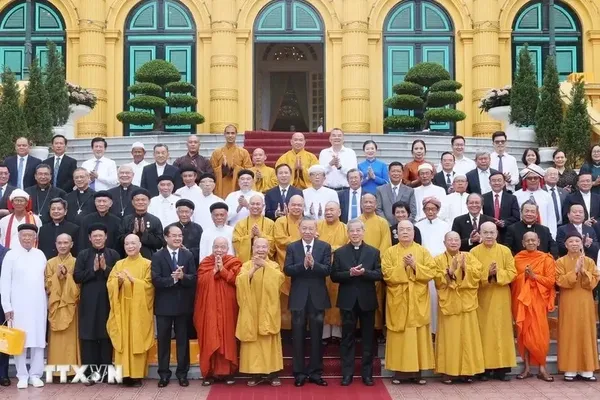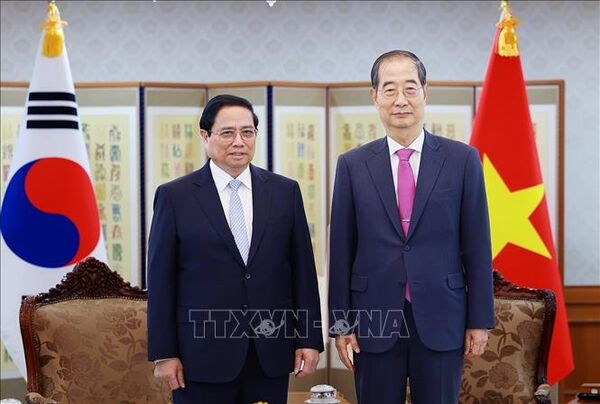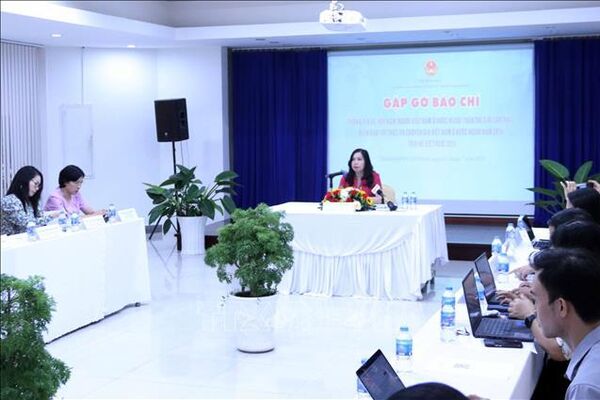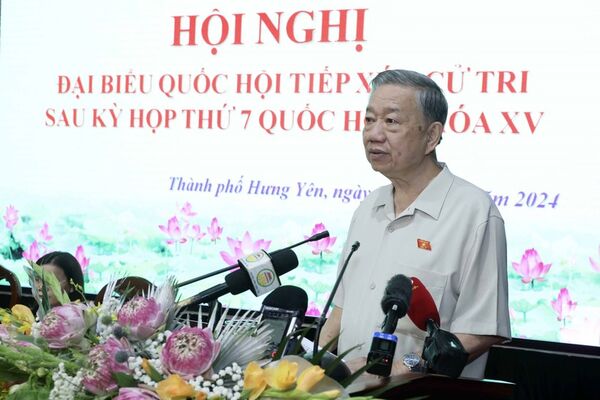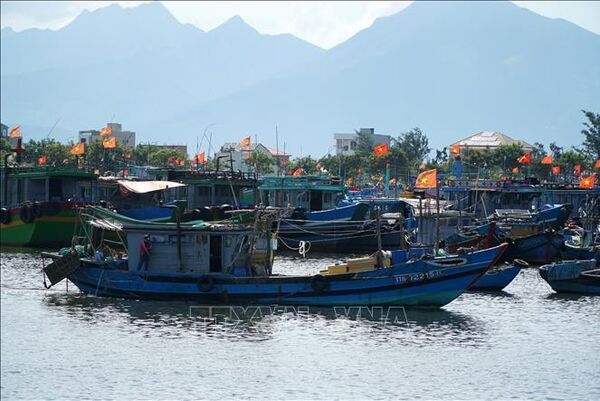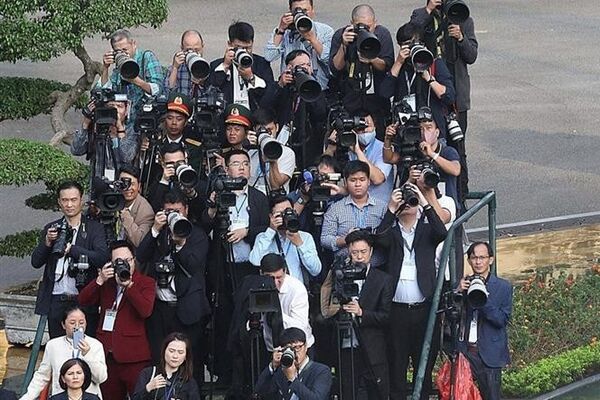 |
| Vietnam's population exceeded 100 million in 2023. (Photo; VNA) |
Hanoi (VNA) – With every population policy centering on fundamental human rights, the population and family planning work has substantially contributed to national socio-economic development over the past years.
Vietnam, which became the 15th country globally to record a population of more than 100 million in 2023, chose the theme “Investing in the population work means investing in sustainable development” for the World Population Day 2024 (July 11).
Seven years ago, it switched from the “family planning” policy to the “population and development” policy, which means investing in the population means investing in the country’s sustainable development.
On October 25, 2017, the sixth meeting of the 12th-tenure Party Central Committee issued Resolution No. 21-NQ/TW on the population work in the new context.
This resolution targets that by 2030, 90% of young men and women will receive pre-marital health advice and check-up, the number of child marriages will be halved and consanguineous marriages reduced by 60%. In addition, 70% of pregnant women will be screened for at least the four most popular congenital diseases and disorders, and 90% of newborns screened for at least the five most popular congenital diseases and disorders.
Besides, the average life expectancy of Vietnamese people is targeted at 75 years while 100% of the elderly will be covered by health insurance and receive daily care and health care either at their families, communities, or in concentrated caring facilities. In the resolution, the country hopes the average height for 18-year-old males will reach 168.5cm and for females 157.5cm, and its Human Development Index (HDI) be among the top four in Southeast Asia by 2030.
 |
| Older persons take part in a knowledge contest about population policies in Ha Nam province. (Photo: VNA) |
To carry out the resolution, on September 2, 2018, the Prime Minister signed a decision approving the Vietnam Health Programme, which looks to create an environment for supporting and improving each people’s capacity, properly carry out health management and comprehensive health care to improve the health, stature, life expectancy, and life quality of Vietnamese people.
During the 2018 - 2030 period, this programme focuses on 11 areas divided into three groups, namely health improvement, health protection and disease prevention, and primary health care and disease control.
It is a fact that the country’s population policies have obtained proud results even during the resistance war against the US and the recovery period after the national reunification in 1975.
In 1960, life expectancy averaged 48 globally and 40 in Vietnam. If the average life expectancy increased 0.1 year annually, the country would need 80 years to reach the global average. However, the life expectancy of Vietnamese rose to 73.6 years in 2019, 1.6 years higher than the global average of 72.
Population censuses since 1989 show that Vietnamese people’s life expectancy has continuously increased, from 65.2 to 73.7 at the end of 2023 – the fourth highest in Southeast Asian and also higher than the global average of 73.4.
In addition, the average height has also been improved. The national nutrition survey for 2017 - 2020 revealed that in 2020, the average height was 168.1cm for 18-year-old males and 156.2cm for females of the same age, compared to the respective figures of 164.4cm and 154.8cm in 2010.
Last year, the under-five mortality rate in Vietnam stood at 18.9 per thousand, dropping by 0.22 per thousand annually over the last five years, according to the Ministry of Health.
The population quality in Vietnam has been improved thanks to humane and practical human rights policies such as prioritising assistance for low-income earners, ethnic minority people, women, the elderly, and children.
 |
| A grassroots health worker gives advice on child nutrition to Bru - Van Kieu ethnic people in Le Thuy district, Quang Binh province, part of efforts to reduce malnutrition among under-five children in mountainous and remote areas. (Photo: VNA) |
To enhance maternal and infant health care to further bring down the under-five mortality rate, on June 26 this year, the Ministry of Health issued a directive that requires local health departments propose provincial-level People’s Committee increase funds for intervention measures to reduce child mortality, improve health establishments’ capacity of delivering newborn emergency and intensive care, and step up regular health check-up for children.
In July 2024, the Government released Decree 76/2024/ND-CP, which raises social allowances for the elderly up to 1.5 million VND from July 1. Beneficiaries include elderly persons without anyone caring for them, those aged 75 and over from poor and near-poor families, and those aged 80 and over without pensions, monthly social insurance benefits, or monthly social allowances.
Meanwhile, the Party and State have also issued many specific policies to improve living conditions in ethnic minority areas. The Government’s Committee for Ethnic Minority Affairs said there are 188 policies designed for ethnic minority and mountainous areas at present.
In 2023, the poverty rate among ethnic minority households dropped to about 17.82%, down 3.2% from the previous year, statistics show.
Thanks to the proper implementation of the Party and State’s poverty reduction policies and programmes, the life quality of poor households has been gradually improved.
Across the country, the household poverty rate was slashed to 2.93% as calculated basing on multidimensional standards in 2023, a significant decline from 58.1% in 1993 and 9.88% in 2015. That has turned Vietnam into one of the world’s role models in poverty alleviation.
The Vietnam Office of the United Nations Development Programme (UNDP) said Vietnam is in the top group among the three groups of countries posting the fastest progress in realising the Sustainable Development Goals, and also one of the best performers in Asia.
Those achievements can be said to be a clear demonstration of the country’s practical moves to protect human rights in a way that putting the fundamental human rights at the centre of population policies./.

